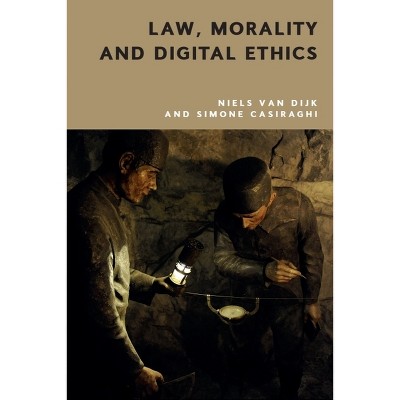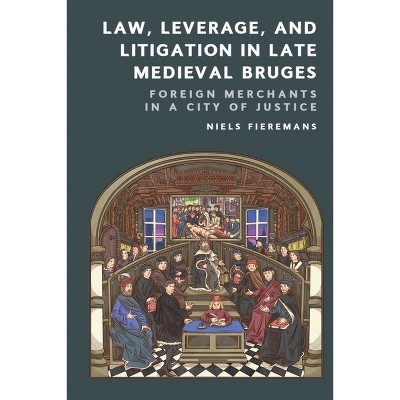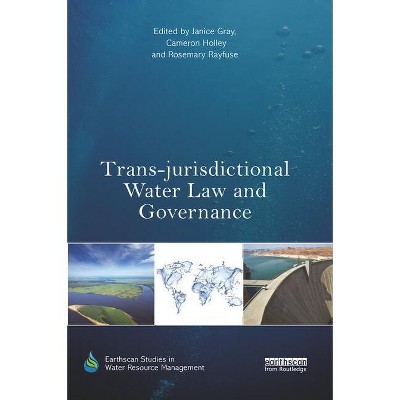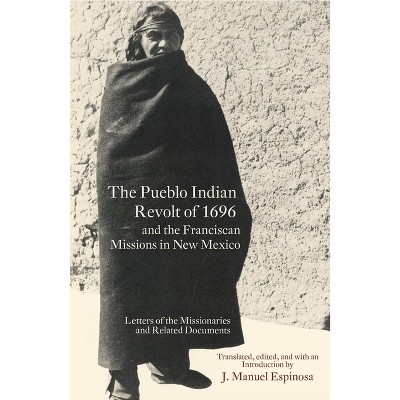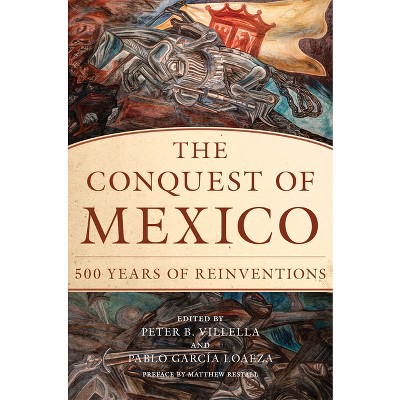Mexico's Unrule of Law - by Niels Uildriks (Hardcover)

$147.00 when purchased online
Target Online store #3991
About this item
Highlights
- Mexico's Unrule of Law: Human Rights and Police Reform Under Democratization looks at recent Mexican criminal justice reforms.
- About the Author: Niels Uildriks is a senior researcher and consultant at the Institute for Safety and Security and Crisis Management (COT) in the Hague, the Netherlands.
- 332 Pages
- Social Science, General
Description
About the Book
Mexico's Unrule of Law: Human Rights and Police Reform Under Democratization looks at recent Mexican criminal justice reforms. Using Mexico City as a case study of the social and institutional realities, Niels Uildriks focuses on the evolving police and justice system within t...Book Synopsis
Mexico's Unrule of Law: Human Rights and Police Reform Under Democratization looks at recent Mexican criminal justice reforms. Using Mexico City as a case study of the social and institutional realities, Niels Uildriks focuses on the evolving police and justice system within the county's long-term transition from authoritarian to democratic governance. By analyzing extensive and penetrating police surveys and interviews, he goes further to offer innovative ideas on how to simultaneously achieve greater community security, democratic policing, and adherence to human rights.Review Quotes
Mexico's Unrule of Law makes an uncommonly serious attempt to grapple with the interaction of policing themes too often normally dealt with in relative isolation. By probing the multilayered, sometimes mutual and often competing obligations between and among police rank and file, their managers and political masters, and the individuals and communities they ostensibly serve, Niels Uildriks seeks to show us not only the form but the fiber of the Gordian knot of police reform. That task is especially daunting in Mexico, where police managers are buffeted by the elevation of politics over policy; police institutions lack the fundamental tools for effective law enforcement; officers are demoralized by their vulnerability to the whims of superiors; while the public suffers from the profound impunity enjoyed by police for serious rights abuse and widespread corruption. With the elements of this complex portrait in hand, readers of Unrule of Law-which will hopefully include more than a few police officials-will be able to reflect in a more concerted fashion about what needs to be done.
In this book, Dutch scholar Uildriks (Institute for Safety and Security and Crisis Management, Netherlands) analyzes the various overwhelmingly unsuccessful attempts to reform the police and criminal justice systems and thus improve human rights in Mexico since its democratization in 2000. The specific focus is on policing in Mexico City, and the main contribution of the book is a survey of and interviews with police there. One key change since democratization is that the population is less fearful of the police. However, the broad policing problems of human rights abuses, pervasive and hierarchical corruption, and lack of horizontal oversight by other government agencies remain. More broadly, Mexico lacks a truly democratic political culture in which laws and state actors are seen as legitimate and deserving of being followed. Uildriks proposes further reforms in the areas of internal police structures (e.g., appointments, training, promotion, and discipline) and decentralization, including community policing. The key goal is to increase police accountability and public trust. Summing Up: Recommended. Upper-division undergraduates, graduates, and above.
Mexico's Unrule of Law, a book that seeks to "probe the impact of different police reforms in terms of reduction of human rights abuses" in the country, is certainly good news for scholars, practitioners, and anyone interested in understanding the deep problem of insecurity that has engulfed Mexico in recent years (xiii).
Niels Uildriks, known for his doctorate on norms and control of police violence, has researched the considerable efforts made at reforming the Mexican police force into an effective organization based on the rule of law. The result is a sound study, with a solid empirical body of work firmly rooted in the scientific literature, on Latin America and the police.
The quality of democracy and the rule of law are the key issues of contemporary Mexico. Mexico's Unrule of Law examines the contradictions and complexities of a key player inside the Mexican law enforcement system: the police. The Mexican police exemplifies many of the fundamental issues that undermine democratization and rule of law: corruption, abuse of authority, generalized distrust of public institutions, lack of transparency, predominance of informal arrangements, and politicization. Moreover, the book demonstrates that throwing money and grand-design organizational reforms, much less militarization, are not likely to resolve the crisis of Mexican policing and law enforcement in general. Instead, the author calls for alternative strategies and projects of reform that link to the core of the problem: to reconnect citizens and the state in order to reassemble the state as an institutional and moral order from below.
With its astounding array of materials on the Mexican justice system, this book will convince its readers of the tangled complexity of Mexico's war on crime, the huge institutional barriers to winning that battle, and the sheer importance of staying committed to the struggle despite the tremendous task at hand. As a resource for facts on the administration of the justice system in Mexico, holding within its pages in-depth examination of police corruption, human rights abuses, citizen disenfranchisement, and the impact of politics on efforts to reform, there is no single other source in English that comes close to this book in content and sweep. Niels Uildriks has accomplished the near impossible with this compilation of disparate but critical materials on policing, human rights, and judicial reform.
About the Author
Niels Uildriks is a senior researcher and consultant at the Institute for Safety and Security and Crisis Management (COT) in the Hague, the Netherlands.
Nelia Tello Peón is social worker at the National University of Mexico.Dimensions (Overall): 9.1 Inches (H) x 6.2 Inches (W) x 1.1 Inches (D)
Weight: 1.4 Pounds
Suggested Age: 22 Years and Up
Number of Pages: 332
Genre: Social Science
Sub-Genre: General
Publisher: Lexington Books
Format: Hardcover
Author: Niels Uildriks
Language: English
Street Date: May 16, 2010
TCIN: 1005110699
UPC: 9780739128930
Item Number (DPCI): 247-01-9000
Origin: Made in the USA or Imported
Shipping details
Estimated ship dimensions: 1.1 inches length x 6.2 inches width x 9.1 inches height
Estimated ship weight: 1.4 pounds
We regret that this item cannot be shipped to PO Boxes.
This item cannot be shipped to the following locations: American Samoa (see also separate entry under AS), Guam (see also separate entry under GU), Northern Mariana Islands, Puerto Rico (see also separate entry under PR), United States Minor Outlying Islands, Virgin Islands, U.S., APO/FPO
Return details
This item can be returned to any Target store or Target.com.
This item must be returned within 90 days of the date it was purchased in store, shipped, delivered by a Shipt shopper, or made ready for pickup.
See the return policy for complete information.
Trending Non-Fiction


$12.54
MSRP $22.00
Save $5 when you spend $25 on select books
4.7 out of 5 stars with 20 ratings


$10.84
MSRP $15.99
Save $5 when you spend $25 on select books
4.9 out of 5 stars with 12 ratings

$20.75 - $21.99
MSRP $21.99 - $32.50 Lower price on select items
Save $5 when you spend $25 on select books on select items
4.6 out of 5 stars with 9 ratings

$18.71
MSRP $34.99
Save $5 when you spend $25 on select books
5 out of 5 stars with 9 ratings
